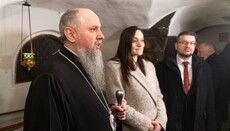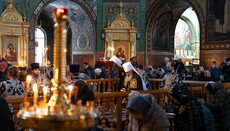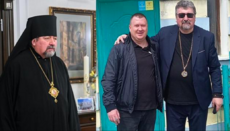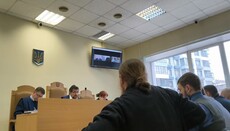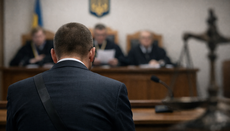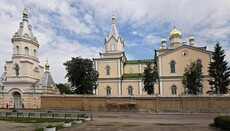Two new saints included into Synaxis of Russian New Martyrs and Confessors
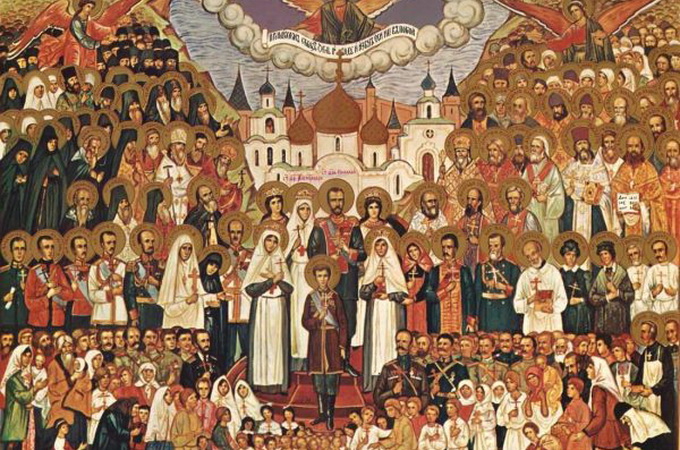
The memory of Fr. Mikhail Lisitsin will be celebrated on February 26/March 11, and that of Fr. Alexander Fleginsky on March 24/April 6. Their names will be reported to the primates of the brother Orthodox Churches for inclusion in their liturgical calendars.
Fr. Mikhail Mikhailovich Lisitsin was born on October 19, 1862 into a priest’s family in the village of Ekshur in the Ryazan Province. After graduating from the Ryazan Seminary in 1883 he became a rural school teacher. He was ordained as a deacon and then priest in 1885, appointed to serve in the Trinity Church in the Ryazan village of Katino.
In 1895 he was transferred to the Vladikavkaz Diocese. His activities were noted by the Holy Synod, who awarded him a Bible on May 11, 1902 “for zealous work and care for the education of children.” He moved to the Stavropol Diocese in 1907, and in 1912 was appointed to St. Nicholas’ Church in the village of Ust-Labinsk in the Kuban Region in southern Russia.
He was arrested on February 22, 1918 when Bolshevik troops entered the village, and was tortured for three days before being killed already on February 26. His body was discovered covered in wounds, with his head cut into pieces. The soldiers forbade his body to be buried, but his widow was able to gather enough money to buy his body for burial.
A special list of those suffering for the faith was read out at the All-Russian Church Council on September 20, 1918, including Fr. Mikhail among the Kuban confessors and martyrs.
Fr. Alexander Kosmich Fleginsky was born on February 19, 1861, also into a priest’s family. He graduated from the Stavropol Seminary in 1883, becoming a priest in the same year, and was assigned to serve in the Church of St. Longinus the Centurion in the Kuban Region, before being transferred to Krasnogorsk in 1885, where he served as a missionary and spiritual father for the local deanery.
In 1908 he was transferred to the village of Georgie-Afipsky and appointed as the local dean. A wave of violence and murder swept through the village after it was captured by Bolsheviks in March 1918. Fr. Alexander was captured by the Red Army and cut into pieces. His body was found outside the village only seven months later. His son was able to take his remains to the city of Ekaterinodar where he was buried at the St. Alexander Nevsky Cathedral on September 18. It was established that he had been killed on March 24.
The Bishops' Jubilee Council of 2000 defined: "In the post-Council time, the new martyrs and confessors of the Russian Orthodox Church should be included into the venerated Synaxis of Russian New Martyrs and Confessors with the blessing of His Holiness Patriarch and the Holy Synod, on the basis of preliminary studies conducted by the Synodal Commission for the Canonization of Saints" (para 14 of the Act on the Synaxis of Russian New Martyrs and Confessors).
0
0
If you notice an error, select the required text and press Ctrl+Enter or Submit an error to report it to the editors.
Read also






